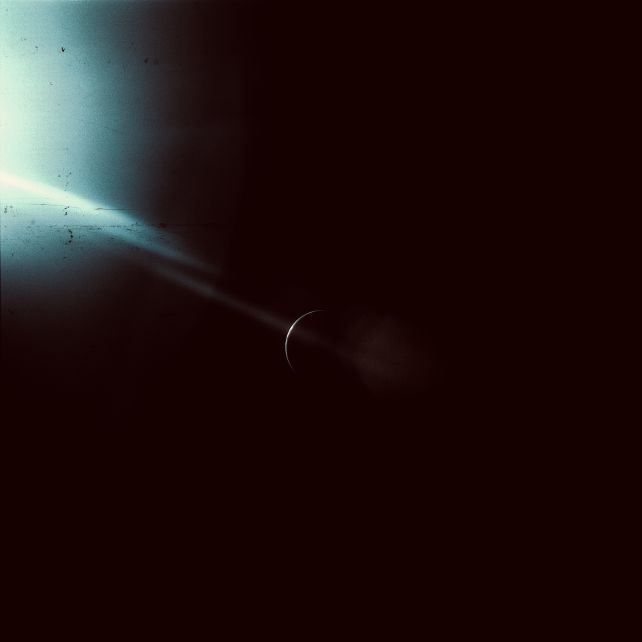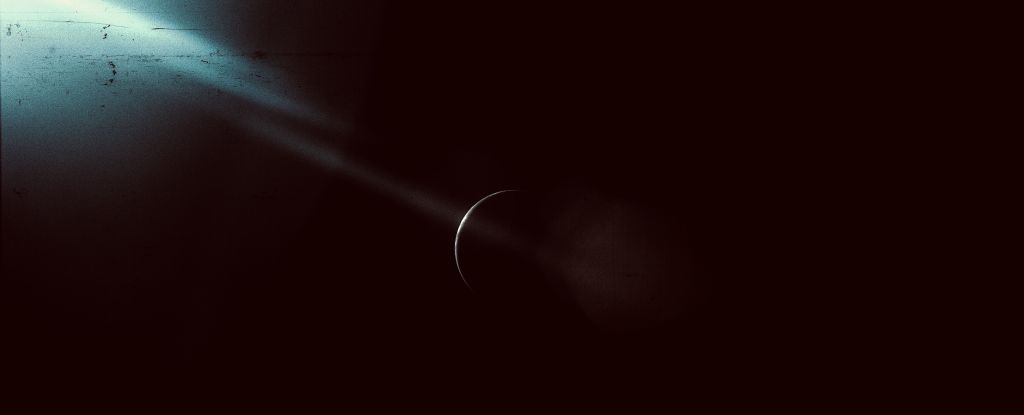Products You May Like
Our gleaming blue marble of a planet is a treasure that shimmers and sparkles in the darkness of space.
Most of humanity will never get a first-person view of this magnificent sight. But the rare few that experience the wonder of extraterrestrial travel have documented their journeys in detail, giving us a breathtaking, beautiful glimpse of Earth’s context in space.
One such glimpse that delivers a frisson of emotion was snapped by the late NASA astronaut Al Worden in 1971.
As the Apollo 15 mission made its return journey back to Earth from the Moon, Worden picked up a 70mm Hasselblad camera and snapped the crescent Earth, a delicate curved sliver in space, edge-lit by the glare of the Sun.
Worden was the command module pilot for Apollo 15, and he spent three of his six days orbiting the Moon alone, while mission commander David Scott and lunar module pilot James Irwin explored the Hadley-Apennine region on the lunar surface, far below.

On the return from the Moon, Worden performed the first spacewalk in deep space to retrieve film cassettes from the Panoramic and Mapping cameras from the Scientific Instrument Module.
This spacewalk and the sights he experienced affected him deeply, leading to the 1974 release of the first published poetry volume by a returned astronaut.
It is his poetry that speaks the loudest while looking at this shining crescent, illuminated by lens flare created by the blazing light of the Sun, so apparently fragile and resilient, all at once against the darkness that enfolds us all.
In his poem “Perspective”, Worden wrote:
Of all the stars, moons, and planets,
Of all I can see or imagine,
This is the most beautiful;All the colors of the universe
Focused on one small globe;
And it is our home, our refugeNow I know why I’m here;
Not for a closer look at the moon,
But to look back
At our home
The earth.
These powerful feelings seem never to have left. In 2011, Worden published Falling to Earth, a memoir about his journey to the Moon and back.
“Occasionally I am reminded of my brief glimpse into infinity while alone on the moon’s far side. I still have lingering questions about what I experienced. The answers won’t come in my lifetime. That will be your job,” he wrote.
“Try it, sometime. Some day all of us who journeyed to the moon will be gone. Take a walk on a summer night, look up at the moon, and think of us. A part of us is still there and always will be.”
